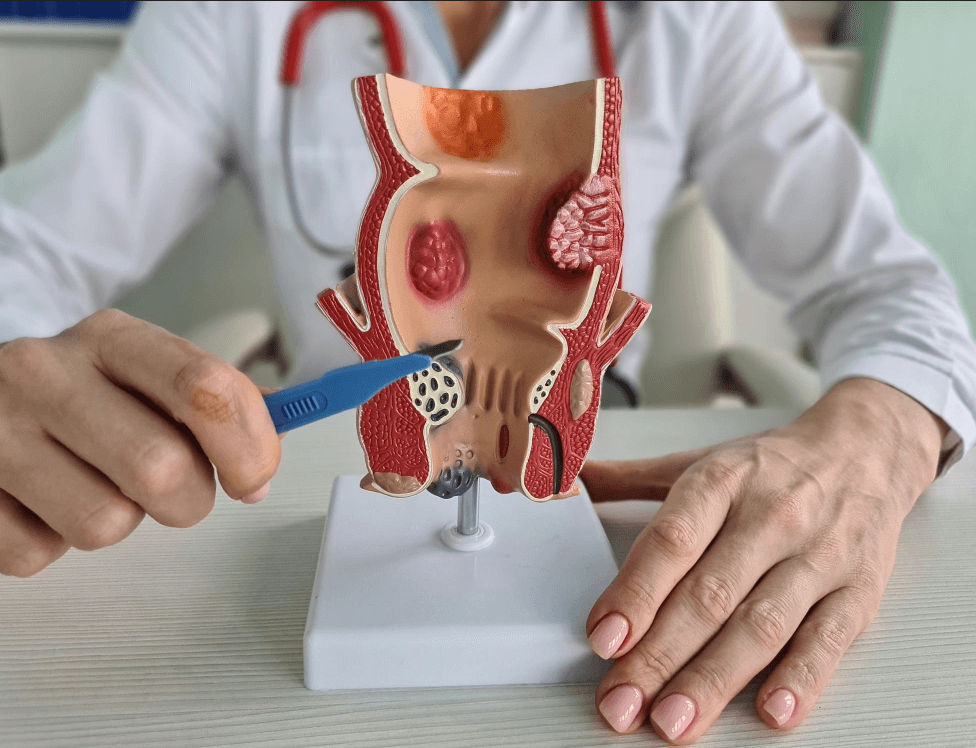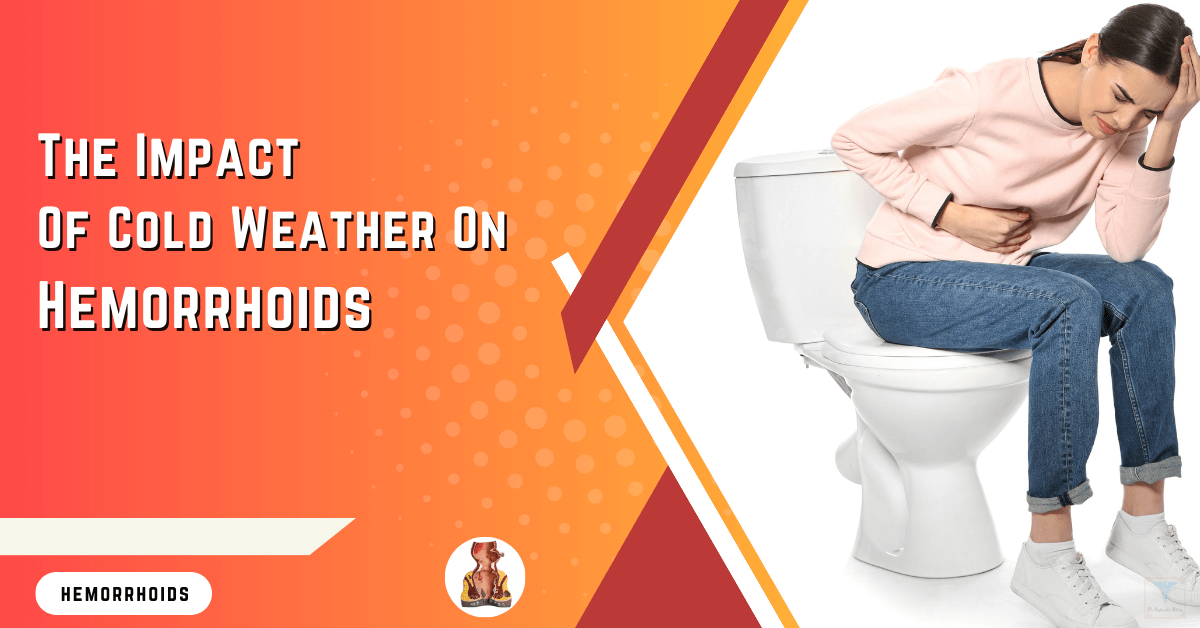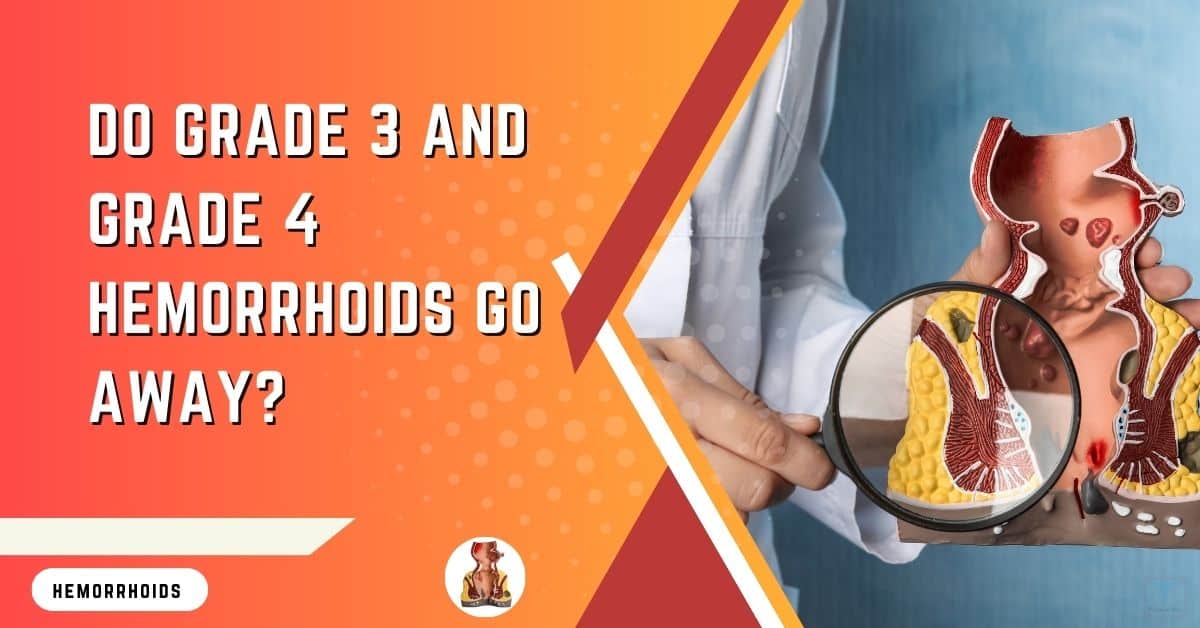Are grade 4 hemorrhoids cancerous? Are they life-threatening? The answer is no. Grade 4 hemorrhoids, characterized by permanent protrusion through the anus, are unpleasant and painful but are fortunately not cancerous in most cases.
While hemorrhoids are swollen veins that have enlarged abnormally, they are benign vascular tissue and do not transform into malignancy.
However, it is important to seek an evaluation of any anal symptoms to confirm the diagnosis since other conditions can mimic hemorrhoids.
Are Grade 4 Hemorrhoids Cancerous: Key Points
- Grade 4 hemorrhoids are not malignant since they arise from dilated blood vessels, not cancerous mutations.
- Rectal cancer can mimic hemorrhoid symptoms, so professional evaluation of anal symptoms is essential.
- Signs like daily bleeding, lumps deep in the rectum, and unexplained weight loss warrant investigation.
- Examination and testing can determine whether symptoms are caused by hemorrhoids or potential cancer.

What Are Grade 4 Hemorrhoids?
Grade 4 hemorrhoids are the most severe type, with hemorrhoidal tissue constantly prolapsing outside the anus due to weakened rectal muscles.
The anal cushion-like tissue remains prolapsed and cannot retract back inside on its own. There may be bleeding, irritation, swelling, and seepage.
Tissue Changes In Grade 4 Hemorrhoids
The prolapsed hemorrhoidal tissue becomes progressively enlarged, inflamed, and damaged over time. Small clots may form.
The tissue may harden from repeated friction and trauma. But these changes are benign—just the body’s response to the hemorrhoids being constantly exposed.
Reasons Grade 4 Hemorrhoids Are Not Cancerous:
- Hemorrhoids contain normal blood vessels that have abnormally dilated and protruded—they do not transform into cancerous tissue.
- There are no malignant cells present that could reproduce and spread elsewhere in the body.
- Hemorrhoids arise from vascular changes, not any cellular mutation.
- When surgically removed, there is no risk of recurrence as there would be with cancer.
- Hemorrhoids form as a result of chronic straining, constipation, obesity, and aging – not carcinogenic exposure.
- While annoying, hemorrhoids are not a systemic health threat as cancer is. They remain confined to the anus.

Signs That Suggest Cancer Rather than Hemorrhoids:
- Persistent bleeding daily rather than only with bowel movements.
- Significant unexplained weight loss.
- Lumps felt deep in the rectum rather than under the anal skin.
- Pain centered more internally in the pelvis than externally around the anus.
- Tissue that feels hardened and fixed rather than merely swollen and prolapsing.
Why Cancer Might Be Mistaken For Hemorrhoids?
Some symptoms like rectal bleeding, anal masses, and itching can occur in both hemorrhoids and rectal cancer.
This underscores the importance of having a doctor determine the cause of symptoms rather than assuming they are harmless hemorrhoids.
A digital rectal exam and anoscopy can help evaluate the anorectal tissue. If cancer is at all suspected, procedures like colonoscopy will be performed.
Final Note From Dr. Rajarshi Mitra
I hope this overview has helped explain why even significant grade 4 hemorrhoids are not cancerous.
Please be sure to consult a doctor about any concerning anal symptoms for proper assessment. Let me know if you have any other questions!



















